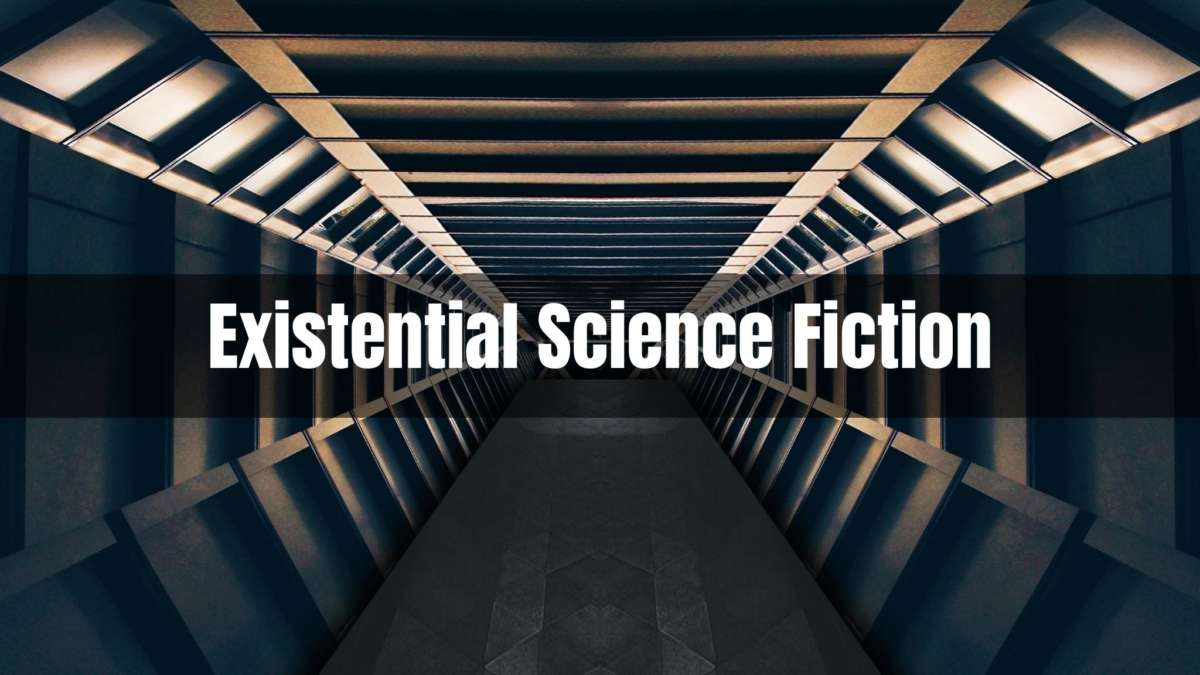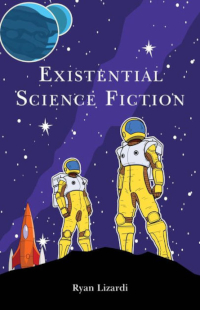 I have mostly spent my scholarly career writing about nostalgia in the media, which can clearly be more of a past-focused endeavor. This entailed looking at the ways different movies, television shows, and video games ask us to view our pasts, often in service of creating lifelong consumers of characters and brands.
I have mostly spent my scholarly career writing about nostalgia in the media, which can clearly be more of a past-focused endeavor. This entailed looking at the ways different movies, television shows, and video games ask us to view our pasts, often in service of creating lifelong consumers of characters and brands.
For my latest book, Existential Science Fiction (Lexington Books), I wanted to ask some more lofty and philosophical questions of the media, such as whether there were any consistent sources of encouragement to contemplate our humanity. And I think I found a subgenre of media that asks us to do just that, to consider the deeper elements of our very existence. From Interstellar to Arrival to Death Stranding, the contemporary science fiction genre contains a potent cluster of existential media.
This book project also proved a nice contrast to my past-focused nostalgia research. What could be more future-focused than the science fiction genre? So, I thought it would be fun to put together a shortlist of some of my favorite existential science fiction books, both past and present, since I did not get a chance to focus as much on the literature in my book. I hope you enjoy these books, and, who knows, you may even get some insights into your own humanity along the way.
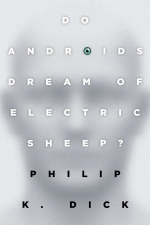 Do Androids Dream of Electric Sheep? by Philip K. Dick | Del Ray
Do Androids Dream of Electric Sheep? by Philip K. Dick | Del Ray
Considering the influence of this book, and Philip K. Dick’s work, on science fiction literature and films, it seems only fitting to include it here in this list. The plot is familiar, only because it has inspired so many works that followed, with the differences between humans and androids comprising the bulk of the conflict. Often quite different from its Blade Runner film adaptation, Electric Sheep works through the conundrum of what makes us human in the first place. Is it our consciousness, our memories, our emotions, or something more ineffable? The existential impact of Philip K. Dick’s work on the science fiction genre is undeniable, so if you find yourself enjoying Electric Sheep, you’ll have plenty of successors to pick up and read afterward.
Amazon | Barnes & Noble | IndieBound | Bookshop
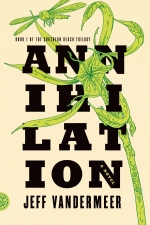 Annihilation by Jeff VanderMeer | Farrar, Straus and Giroux
Annihilation by Jeff VanderMeer | Farrar, Straus and Giroux
You get a 3-for-1 deal with this recommendation as this book is part of the “Southern Reach Trilogy,” which was all released in 2014 making for a tightly woven narrative about a mysterious lighthouse and the surrounding “Area X.” VanderMeer weaves through philosophy and existential thought as a government agency enlists specialists to explore the area, only to have them disappear or return as seemingly different people. Gripping, mysterious, and often confusing (in a good way), Annihilation culminates with a mind-bending sequence in a descending tower that will have you reaching for the second book in the series. A film adaptation of Annihilation was released in 2018, and both versions featured heavily in my Existential Science Fiction book for the ways they encourage us to ask who we are down to a cellular level.
Amazon | Barnes & Noble | IndieBound | Bookshop
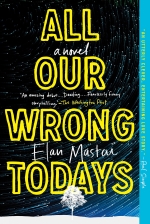 All Our Wrong Todays by Elan Mastai | Dutton
All Our Wrong Todays by Elan Mastai | Dutton
What if the version of who we are and the world we live in isn’t the only one possible? Exploring time travel from a novel perspective is difficult to pull off, but Mastai does so masterfully, telling the story of an alternate history 1950s where the invention of an endless energy source leads to unimaginable technological advancements. Now, after 60 years of utopia, time travel is on the verge of being a reality, but the inventor’s son, Tom, goes back in time and accidentally stops the invention of the energy source, leading to him returning to a present time that resembles our real world. To the utopia-dweller, iPhones and punk rock look like a dystopian nightmare. Come for the novel time-travel story, stay for the wonderful sequences where Tom must convince his family that he is an alternate version of himself.
Amazon | Barnes & Noble | IndieBound | Bookshop
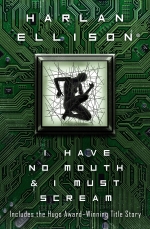 I Have No Mouth, and I Must Scream: Stories by Harlan Ellison | Open Road Media
I Have No Mouth, and I Must Scream: Stories by Harlan Ellison | Open Road Media
The titular story of this collection was originally published in an issue of IF in 1967 and tells the story of a world where global superpowers developed mastercomputers, or AMs, one of which becomes sentient leading to the destruction of almost all of humanity. The AM keeps only five humans alive just to torture them. What is consciousness, what is perception, and what is existence are all explored as only science fiction can do, and the evocative finale is terrifying to imagine. The collection includes six other stories, including multiple Hugo Award finalists, that deepen Ellison’s exploration of existence, who we are, and what makes us human beings.
Amazon | Barnes & Noble | IndieBound
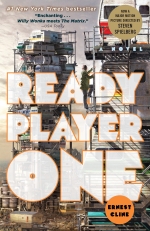 Ready Player One by Ernest Cline | Random House
Ready Player One by Ernest Cline | Random House
The most light-hearted entry in this list, this book is a roller coaster ride of a tribute to 1980s and 1990s video games, books, music and movies. However, don’t be fooled by the pop-culture veneer, Ready Player One contains a complex undercurrent of philosophical musings about humanity, identity and consciousness in a digital world. It’s set in a futuristic dystopian world where most people spend the majority of their lives in a virtual reality universe called the OASIS that is more real to them than their own lives. We follow Wade Watts as he attempts to win a contest created by the deceased OASIS creator, James Halliday. As a bonus, this book has a Steven Spielberg film adaptation and a sequel called Ready Player Two.
Amazon | Barnes & Noble | IndieBound | Bookshop
RELATED POSTS
“Existential Ecology” Through Time in Figuring
BookTrib coverage of Mike Bond, “master of the existential thriller”
10 Bestsellers of Philosophical Fiction To Expand the Mind
6 Works of Speculative Fiction With a Heart for Social Justice

Do Androids Dream of Electric Sheep? by Philip K. Dick
Do Androids Dream of Electric Sheep? by Philip K. Dick

Annihilation by Jeff VanderMeer
Considering the influence of this book, and Philip K. Dick’s work, on science fiction literature and films, it seems only fitting to include it here in this list. The plot is familiar, only because it has inspired so many works that followed, with the differences between humans and androids comprising the bulk of the conflict. Often quite different from its Blade Runner film adaptation, Electric Sheep works through the conundrum of what makes us human in the first place. Is it our consciousness, our memories, our emotions, or something more ineffable? The existential impact of Philip K. Dick’s work on the science fiction genre is undeniable, so if you find yourself enjoying Electric Sheep, you’ll have plenty of successors to pick up and read afterward.


I Have No Mouth, and I Must Scream: Stories by Harlan Ellison
You get a 3-for-1 deal with this recommendation as this book is part of the “Southern Reach Trilogy,” which was all released in 2014 making for a tightly woven narrative about a mysterious lighthouse and the surrounding “Area X.” VanderMeer weaves through philosophy and existential thought as a government agency enlists specialists to explore the area, only to have them disappear or return as seemingly different people. Gripping, mysterious, and often confusing (in a good way), Annihilation culminates with a mind-bending sequence in a descending tower that will have you reaching for the second book in the series. A film adaptation of Annihilation was released in 2018, and both versions featured heavily in my Existential Science Fiction book for the ways they encourage us to ask who we are down to a cellular level.

What if the version of who we are and the world we live in isn’t the only one possible? Exploring time travel from a novel perspective is difficult to pull off, but Mastai does so masterfully, telling the story of an alternate history 1950s where the invention of an endless energy source leads to unimaginable technological advancements. Now, after 60 years of utopia, time travel is on the verge of being a reality, but the inventor’s son, Tom, goes back in time and accidentally stops the invention of the energy source, leading to him returning to a present time that resembles our real world. To the utopia-dweller, iPhones and punk rock look like a dystopian nightmare. Come for the novel time-travel story, stay for the wonderful sequences where Tom must convince his family that he is an alternate version of himself.
The titular story of this collection was originally published in an issue of IF in 1967 and tells the story of a world where global superpowers developed mastercomputers, or AMs, one of which becomes sentient leading to the destruction of almost all of humanity. The AM keeps only five humans alive just to torture them. What is consciousness, what is perception, and what is existence are all explored as only science fiction can do, and the evocative finale is terrifying to imagine. The collection includes six other stories, including multiple Hugo Award finalists, that deepen Ellison’s exploration of existence, who we are, and what makes us human beings.
The most light-hearted entry in this list, this book is a roller coaster ride of a tribute to 1980s and 1990s video games, books, music and movies. However, don’t be fooled by the pop-culture veneer, Ready Player One contains a complex undercurrent of philosophical musings about humanity, identity and consciousness in a digital world. It’s set in a futuristic dystopian world where most people spend the majority of their lives in a virtual reality universe called the OASIS that is more real to them than their own lives. We follow Wade Watts as he attempts to win a contest created by the deceased OASIS creator, James Halliday. As a bonus, this book has a Steven Spielberg film adaptation and a sequel called Ready Player Two.

